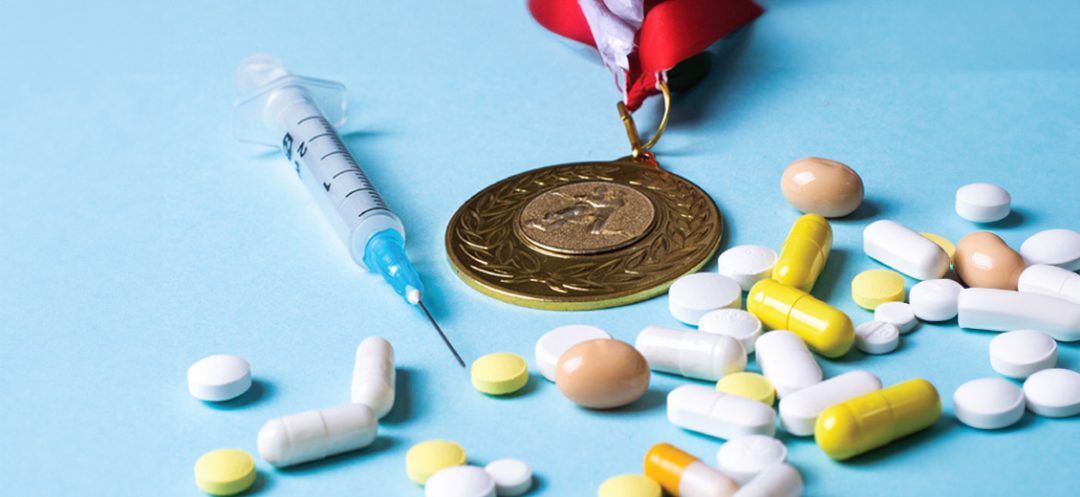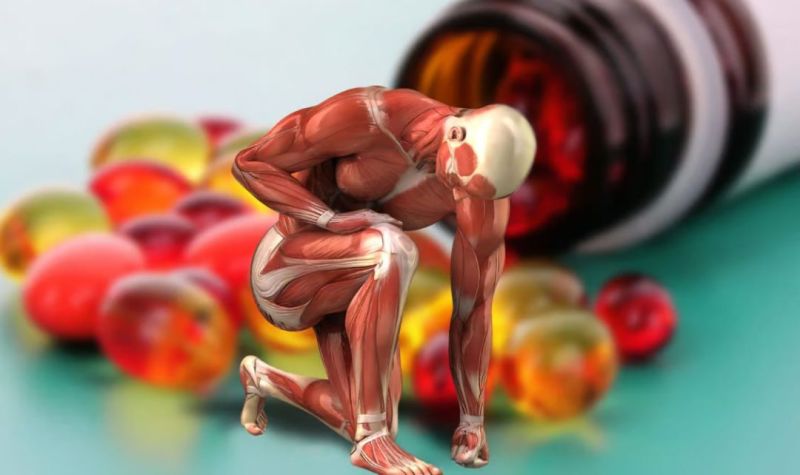
Doping Tests and Prevention Measures in Lebanese Sports: What’s the Situation?
Doping in Lebanon, although less publicized than in other countries, remains a concern for sports authorities. Questions persist about the regularity and effectiveness of anti-doping tests, as well as the follow-up provided by sports federations. It is crucial to determine if Lebanese athletes are well-informed and taking measures to avoid banned substances. Strengthening regulations and anti-doping control is essential to combating this problem.
When asked by This is Beirut about the existence of annual follow-up and anti-doping tests, Dr. Jihad Haddad, the national anti-doping coordinator at the Lebanese Olympic Committee, confirmed that this year, the national federation initiated numerous tests in collaboration with the Lebanese Olympic Committee.
In basketball, tests were conducted during the semifinals and finals, as well as at the Lebanese national athletics championship, swimming competitions, and other sporting events. Dr. Haddad emphasized that it was mandatory to test athletes participating in the Paris Olympic Games. He also noted that anti-doping rules are not always taken seriously in all Lebanese sports. For example, the football-futsal and handball federations as well as many other individual sports like MMA, boxing, and Muay Thai have not conducted such tests.
On his part, Mehdi Khalil, the goalkeeper of the Lebanese national football team, revealed to This is Beirut that in the Lebanese league, they have never been subjected to doping tests, but players take care of themselves because those who play for the national team understand the importance of this issue and the consequences that could end their careers.
Mark Anthony Ibrahim, a track and field athlete, confirmed that when athletes set national records, the Federation requires anti-doping tests. This rule was established by the Federation for records to be officially recognized. For example, Ibrahim underwent several tests after breaking records last year.

Anti-Doping Control Process
How are players tested for banned substances?
Mark Anthony Ibrahim detailed the process athletes go through when subjected to a test. They enter a room to deposit their urine in a container under the supervision of an official to prevent cheating. Then, the urine is divided into two samples: one for the initial test and the other for a possible counter-analysis in case the results are contested.
Dr. Haddad added that these samples are stored according to international preservation standards and then sent to an accredited laboratory. There, they undergo thorough analysis for banned substances. Once the analyses are complete, the results are uploaded into a secure global system known as "ADAMS."
This system ensures the transparency and integrity of anti-doping tests, thereby ensuring that sports competitions are conducted according to the rules and sporting ethics.
Doping in sports is a complex and pervasive challenge that threatens the integrity and fairness of competitions worldwide. Despite advances in detection methods and strengthened regulations, it remains a major concern for sports authorities and athletes themselves. Interviews with key figures like Dr. Jihad Haddad, Mehdi Khalil, and Mark Anthony Ibrahim reveal varied perspectives on anti-doping practices in Lebanon and the efforts undertaken to maintain a fair and transparent sporting environment.
These discussions underscore the paramount importance of awareness, education, and strict enforcement of anti-doping rules to ensure fair competitions and protect athletes' health. By exploring the historical, ethical, and practical dimensions of doping, this article highlights the persistent challenges and necessary initiatives to promote clean sport that respects its fundamental values.
[readmore url="https://thisisbeirut.com.lb/sports/268269"]
Doping in Lebanon, although less publicized than in other countries, remains a concern for sports authorities. Questions persist about the regularity and effectiveness of anti-doping tests, as well as the follow-up provided by sports federations. It is crucial to determine if Lebanese athletes are well-informed and taking measures to avoid banned substances. Strengthening regulations and anti-doping control is essential to combating this problem.
When asked by This is Beirut about the existence of annual follow-up and anti-doping tests, Dr. Jihad Haddad, the national anti-doping coordinator at the Lebanese Olympic Committee, confirmed that this year, the national federation initiated numerous tests in collaboration with the Lebanese Olympic Committee.
In basketball, tests were conducted during the semifinals and finals, as well as at the Lebanese national athletics championship, swimming competitions, and other sporting events. Dr. Haddad emphasized that it was mandatory to test athletes participating in the Paris Olympic Games. He also noted that anti-doping rules are not always taken seriously in all Lebanese sports. For example, the football-futsal and handball federations as well as many other individual sports like MMA, boxing, and Muay Thai have not conducted such tests.
On his part, Mehdi Khalil, the goalkeeper of the Lebanese national football team, revealed to This is Beirut that in the Lebanese league, they have never been subjected to doping tests, but players take care of themselves because those who play for the national team understand the importance of this issue and the consequences that could end their careers.
Mark Anthony Ibrahim, a track and field athlete, confirmed that when athletes set national records, the Federation requires anti-doping tests. This rule was established by the Federation for records to be officially recognized. For example, Ibrahim underwent several tests after breaking records last year.

Anti-Doping Control Process
How are players tested for banned substances?
Mark Anthony Ibrahim detailed the process athletes go through when subjected to a test. They enter a room to deposit their urine in a container under the supervision of an official to prevent cheating. Then, the urine is divided into two samples: one for the initial test and the other for a possible counter-analysis in case the results are contested.
Dr. Haddad added that these samples are stored according to international preservation standards and then sent to an accredited laboratory. There, they undergo thorough analysis for banned substances. Once the analyses are complete, the results are uploaded into a secure global system known as "ADAMS."
This system ensures the transparency and integrity of anti-doping tests, thereby ensuring that sports competitions are conducted according to the rules and sporting ethics.
Doping in sports is a complex and pervasive challenge that threatens the integrity and fairness of competitions worldwide. Despite advances in detection methods and strengthened regulations, it remains a major concern for sports authorities and athletes themselves. Interviews with key figures like Dr. Jihad Haddad, Mehdi Khalil, and Mark Anthony Ibrahim reveal varied perspectives on anti-doping practices in Lebanon and the efforts undertaken to maintain a fair and transparent sporting environment.
These discussions underscore the paramount importance of awareness, education, and strict enforcement of anti-doping rules to ensure fair competitions and protect athletes' health. By exploring the historical, ethical, and practical dimensions of doping, this article highlights the persistent challenges and necessary initiatives to promote clean sport that respects its fundamental values.
[readmore url="https://thisisbeirut.com.lb/sports/268269"]
Read more




Comments